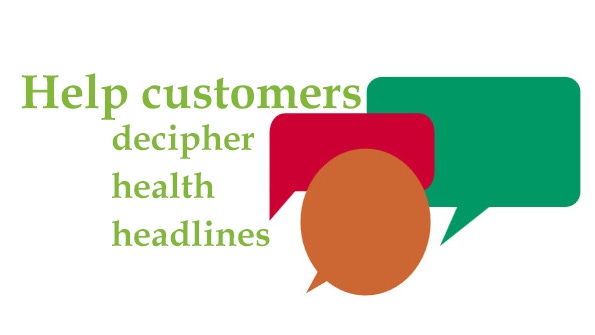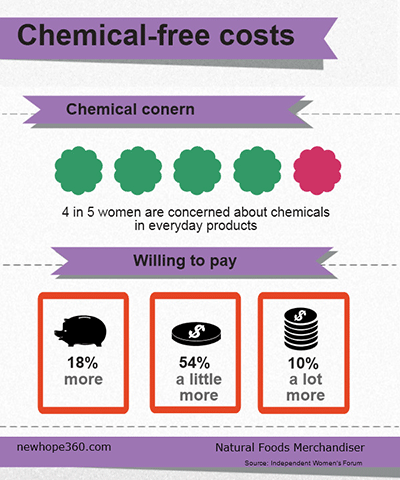Retailers can combat skepticism of health messages

 “Stop yelling at me.” And “quit making me feel guilty.”
“Stop yelling at me.” And “quit making me feel guilty.”
That’s what women are saying when it comes to health reporting, according to survey of 801 conducted for the Independent Women’s Forum (a nonprofit that touts its nonpartisanship in its “mission to expand the conservative coalition”).
Women want more information, but they don’t trust media because of alarmist headlines. They have even less faith in big business and partisan politicians. And they view activist organizations and government actions with suspicion.
Who do they trust? Friends, family and doctors.
Could they trust you?
Certainly there is an opportunity for health food retailers to build that relationship.
An Institute for the Future report in 2008 found that grocery stores rate No. 3 as a source of information used before buying a food or health product. Customers pointed to product labels as their No. 1 information sources, followed by family and friends. In this study, the media outranked doctors as the fourth and fifth sources of health information.
Here are a few highlights of the Independent Women’s Forum findings natural foods retailers might find interesting:
Changing habits: 78 percent report paying close attention to health and safety warnings, yet more than half of them (56 percent) have not altered their use or purchasing habits based on the information. (I see great opportunity in the 44 percent.)
Chemical concern: One area where women “perceived a clear and present danger” is regarding chemicals in products: Roughly 4 out of 5 (79 percent) say they are concerned, with a third saying they are “very” concerned. Sixty-four percent say they will pay more money for products that don’t contain certain chemicals.
Government rules: 63 percent of women say government regulation of food and consumer choices has either no effect or a counter-productive impact on personal lives and improved health. (This comes out in the same week anti-smoking crusaders touted the success of local and state government regulations on the vast reduction of cigarette use among Americans.)
Feeling informed: 83 percent of women say they have difficulty discerning between legitimate concerns that might affect their health and well-being and headline hype; 36 percent say negative warnings inform them well.
Have you found success building a culture of health education and trust? Please share your insights below.
About the Author(s)
You May Also Like




